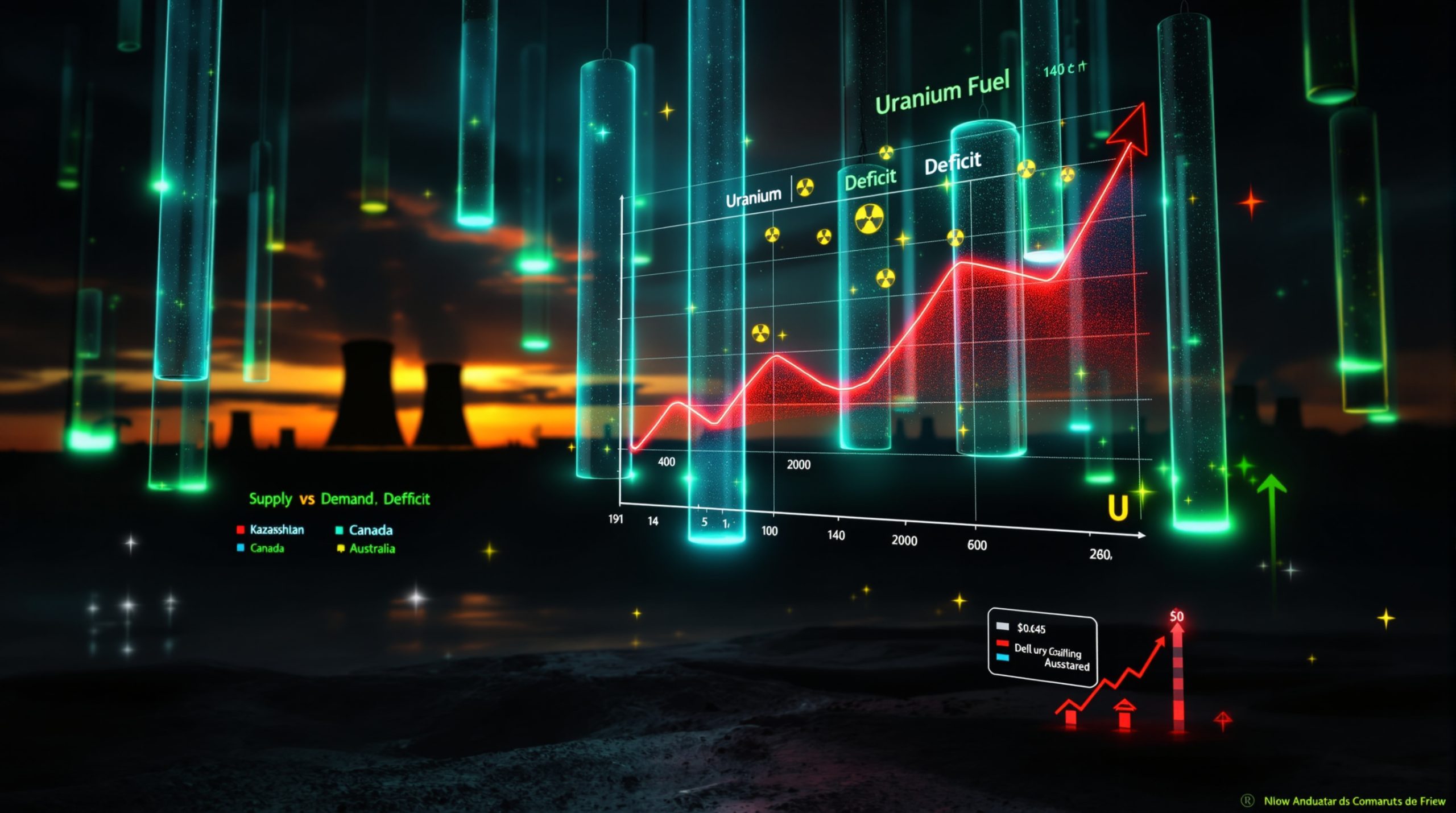The Remarkable Rally of South African Stocks in 2025
South African equities have demonstrated exceptional performance in 2025, with the FTSE/JSE Top40 Index posting a remarkable 44% gain in dollar terms. This significantly outpaces the broader MSCI Emerging Markets benchmark, which rose by 23% during the same period. The impressive rally reflects a favorable investment environment created by several key factors working in tandem.
Currently, the market trades at 11.5 times forward earnings, representing a 17% discount to the emerging markets benchmark. This valuation gap suggests potential for further upside despite the strong performance already seen this year, attracting increased attention from global investors seeking value opportunities.
What's Behind South Africa's Stock Market Surge?
The surge in South African equities can be attributed to a combination of commodity price strength and improving economic fundamentals. The country's rich mineral resources have positioned it to benefit substantially from rising precious metal prices, particularly gold, which has reached record levels in 2025.
Additionally, a weakening US dollar has created a more supportive environment for emerging markets broadly, with South Africa emerging as a standout performer due to its significant exposure to commodities that typically perform well during dollar weakness. This gold-stock market relationship has been particularly advantageous for South African equities during periods of economic uncertainty.
Goldman Sachs' Bullish Outlook on South African Equities
Investment banking giant Goldman Sachs has taken a decidedly positive stance on South African stocks, upgrading them to "overweight" in August 2025. Their analysis projects an additional 6.3% increase for the FTSE/JSE Top40 Index over the next twelve months, highlighting continued optimism despite the already substantial gains.
According to Sunil Koul, emerging market equity strategist at Goldman Sachs, "We have a bullish view on gold but also think there will be some improvement in domestic growth." This dual catalyst approach combines commodity strength with expectations of economic recovery, forming the foundation of their optimistic outlook for Goldman Sachs mining stocks South African equities.
How Are Precious Metals Powering the Market's Performance?
Gold's Record Run Boosting Mining Equities
The surge in gold prices has been a significant driver behind South Africa's equity market performance. With gold futures trading at $3,853 per ounce (up 1.69% according to September 2025 data from Mining.com), major gold producers listed on the Johannesburg Stock Exchange have experienced substantial share price appreciation.
Gold Fields Ltd. and AngloGold Ashanti Plc have emerged as standout performers among the index's top gainers, benefiting directly from the precious metal's strong performance. Their stock price increases have contributed significantly to the broader market rally, highlighting the outsized impact that mining companies can have on South Africa's equity indices.
South Africa's historical significance as one of the world's premier gold-producing regions means its equity market maintains substantial exposure to precious metals pricing, creating a powerful tailwind when gold prices rise as they have throughout 2025. Recent gold price analysis 2025 suggests this trend may continue.
Mining Sector's Outsized Impact on Index Performance
The mining sector carries substantial weight in South African equity indices, making overall market performance particularly sensitive to commodity price movements. The sector's strong performance has helped offset challenges in other areas of the economy, providing crucial support to the broader market.
This sector concentration creates both opportunities and risks for investors. While mining stocks can deliver exceptional returns during commodity upswings, they can also experience significant volatility based on commodity price fluctuations, global demand patterns, and operational considerations specific to the South African mining environment.
Investors need to understand that the mining sector's performance can sometimes mask weaknesses in other economic segments, making it essential to look beyond headline index returns when evaluating the health of South Africa's economy.
What Macroeconomic Factors Are Supporting South African Equities?
Currency Dynamics: The Weakening Dollar Effect
A key macroeconomic factor supporting South African equities has been the declining strength of the US dollar. This currency dynamic has created a more favorable environment for emerging markets broadly, with South Africa being a notable beneficiary due to its resource-intensive economy.
The weakening greenback has enabled the South African Reserve Bank to maintain interest rates at their lowest levels since November 2022, providing support for domestic equities by reducing borrowing costs and potentially stimulating economic activity. Lower interest rates typically boost equity valuations by reducing discount rates applied to future earnings.
For international investors, the combination of strong equity returns and potential currency gains can be particularly attractive during periods of dollar weakness, further driving capital flows into the South African market. Current US inflation and tariffs have also influenced these currency dynamics.
Monetary Policy Implications for South African Stocks
Goldman Sachs strategists anticipate continued dollar weakness and a dovish Federal Reserve approach, creating opportunities for emerging market central banks—including South Africa's—to pursue accommodative monetary policies.
As Koul explains, "The dollar will continue to weaken from current levels as well as Fed being dovish, which also allows many of EM central banks, including South Africa, to find chances to ease rates where possible." This monetary policy flexibility could further support equity valuations through lower discount rates and improved economic growth prospects.
The potential for interest rate reductions comes at a critical time for South Africa, as lower borrowing costs could help stimulate private sector investment and consumer spending, addressing some of the structural challenges facing the economy.
Investment Considerations for South African Mining Stocks
Evaluating Leading Mining Companies on the JSE
Investors considering exposure to South African mining stocks should focus on companies with strong operational track records, healthy balance sheets, and significant resource bases. Key players in the sector include:
-
Gold Fields Ltd. (JSE: GFI) – One of the world's largest gold mining firms with operations across multiple continents and a substantial presence in South Africa
-
AngloGold Ashanti Plc (JSE: ANG) – A global gold producer with diversified operations and significant technological innovation in deep-level mining
-
Sibanye Stillwater Ltd. (JSE: SSW) – A diversified precious metals producer with substantial gold and platinum group metals assets
These companies represent varying levels of operational diversification, cost structures, and growth profiles, allowing investors to tailor their exposure based on specific investment objectives and risk tolerance.
Risk Factors in South African Mining Investments
While the outlook appears promising, investors should remain cognizant of several risk factors specific to South African mining operations:
-
Labor relations and potential strike activity – The sector has historically experienced significant labor disputes that can disrupt production
-
Electricity supply constraints and load shedding – Ongoing energy security issues continue to affect operational reliability
-
Regulatory uncertainty and mining charter requirements – Changes to mining regulations can impact profitability and operational planning
-
Infrastructure challenges affecting operational efficiency – Aging infrastructure and logistical bottlenecks can increase costs and reduce output
-
Commodity price volatility and its impact on profitability – Mining companies remain highly sensitive to underlying metal prices
A comprehensive investment approach requires balancing these risk factors against the significant upside potential highlighted by Goldman Sachs and other market analysts. Careful company selection focusing on operational excellence and cost management can help mitigate some of these risks.
How Does South Africa Compare to Other Emerging Markets?
Relative Valuation Analysis
South African equities currently offer compelling value compared to broader emerging market indices. The 17% discount to the MSCI Emerging Markets benchmark suggests potential for valuation expansion, particularly if economic growth accelerates and commodity prices remain supportive.
This valuation gap provides a potential margin of safety for investors, especially considering the strong momentum already established in the market and the positive outlook from major investment banks. The forward P/E ratio of 11.5x remains attractive by historical standards and compared to developed markets.
For value-oriented investors, this combination of strong performance momentum and relatively modest valuations presents an intriguing opportunity to gain exposure to both precious metals and emerging market growth. The current gold market surge further enhances this opportunity.
Performance Comparison with Other Emerging Economies
South Africa's 44% dollar-term gain in 2025 places it among the top-performing emerging markets globally. This outperformance reflects both country-specific factors and broader emerging market trends, including:
-
Commodity price strength benefiting resource-rich nations – South Africa's mining sector has provided a significant boost
-
Monetary policy divergence creating opportunities in select markets – The country's central bank has maintained accommodative policies
-
Relative political stability compared to some emerging market peers – Institutional frameworks have remained intact despite challenges
-
Institutional strength of the Johannesburg Stock Exchange – One of Africa's oldest and most developed capital markets
These comparative advantages have contributed to South Africa's equity market outperformance and support the case for continued allocation to the region within diversified emerging market portfolios.
Future Outlook for South African Mining and Broader Equities
Potential Catalysts for Continued Outperformance
Several factors could drive further gains in South African mining stocks and the broader equity market:
-
Continued strength in precious metals prices, particularly gold – Current trends suggest sustained demand for safe-haven assets
-
Improvements in domestic economic growth and consumer confidence – Early signs of economic recovery are emerging
-
Further monetary policy easing by the South African Reserve Bank – Lower rates could stimulate economic activity
-
Resolution of electricity supply constraints affecting mining operations – Infrastructure improvements would boost productivity
-
Increased global investor allocation to emerging markets broadly – Rotation from developed markets could bring new capital
These catalysts align with Goldman Sachs' positive outlook and suggest potential for the rally to extend beyond current levels, particularly if global macroeconomic conditions remain supportive for precious metals and emerging markets.
Long-term Structural Considerations
Beyond short-term performance drivers, investors should consider several structural factors that will influence the long-term trajectory of South African equities:
-
The country's rich natural resource endowment – South Africa possesses world-class deposits of numerous valuable minerals
-
Efforts to address infrastructure challenges – Investments in power generation and transportation networks are ongoing
-
Regulatory reforms aimed at improving the investment climate – Policy changes could enhance sector competitiveness
-
Demographic trends and their impact on consumer markets – A growing middle class represents long-term growth potential
-
Integration with regional African economies and trade flows – South Africa serves as a gateway to broader African markets
These structural elements will shape the investment landscape beyond the current market cycle and influence South Africa's position within global investment portfolios. Ongoing South Africa mineral beneficiation initiatives could also enhance the country's economic diversification.
FAQ: South African Mining Stocks and Equity Markets
Why are mining stocks particularly important to South African equity indices?
Mining stocks carry substantial weight in South African equity indices due to the country's rich mineral endowment and long history of mining activity. The sector represents a significant portion of market capitalization, export earnings, and corporate tax contributions, making it a crucial barometer for overall market performance.
The historical development of South Africa's capital markets has been intertwined with its mining industry, creating an unusually high correlation between commodity prices and broader equity performance. This relationship means that global commodity trends often have an amplified impact on South African indices.
How do gold price movements typically affect South African equities?
Gold price increases generally have a positive impact on South African equities, particularly mining stocks. Higher gold prices improve profitability for producers, potentially leading to increased dividends, capital investment, and balance sheet strengthening. This positive effect often extends beyond mining stocks to the broader market through economic multiplier effects.
With gold futures currently trading above $3,850 per ounce, South African gold producers are experiencing exceptional profit margins, which has translated into strong share price performance. The wealth effect from mining sector profitability can boost consumer spending, property markets, and financial services, creating broader economic benefits.
What role does currency play in South African mining stock performance?
Currency dynamics significantly impact South African mining stocks. A weaker rand typically benefits miners by reducing local-currency operating costs while revenues remain dollar-denominated. Conversely, rand strength can compress margins. The currency effect creates an important consideration for international investors analyzing potential returns in their home currencies.
This relationship means that South African mining stocks can sometimes serve as a natural currency hedge, performing well during periods of rand weakness. International investors need to consider both the underlying commodity price movements and currency effects when evaluating potential returns.
How might interest rate decisions affect South African equities?
Interest rate decisions influence South African equities through multiple channels. Lower rates reduce borrowing costs, potentially stimulating economic activity and supporting equity valuations through lower discount rates. However, rate decisions also impact currency values, inflation expectations, and capital flows, creating complex interactions that investors must carefully evaluate.
The South African Reserve Bank's policy decisions reflect a balance between supporting economic growth and maintaining currency stability. Investors should monitor these decisions closely, as they can significantly influence both the performance of the overall market and the relative attractiveness of different sectors.
Ready to Spot the Next Mining Discovery Before the Market?
Discover why significant mineral announcements can lead to exceptional returns by exploring Discovery Alert's dedicated discoveries page, where our proprietary Discovery IQ model delivers instant notifications on major ASX mineral discoveries, helping you capitalise on opportunities before the broader market recognises them.




